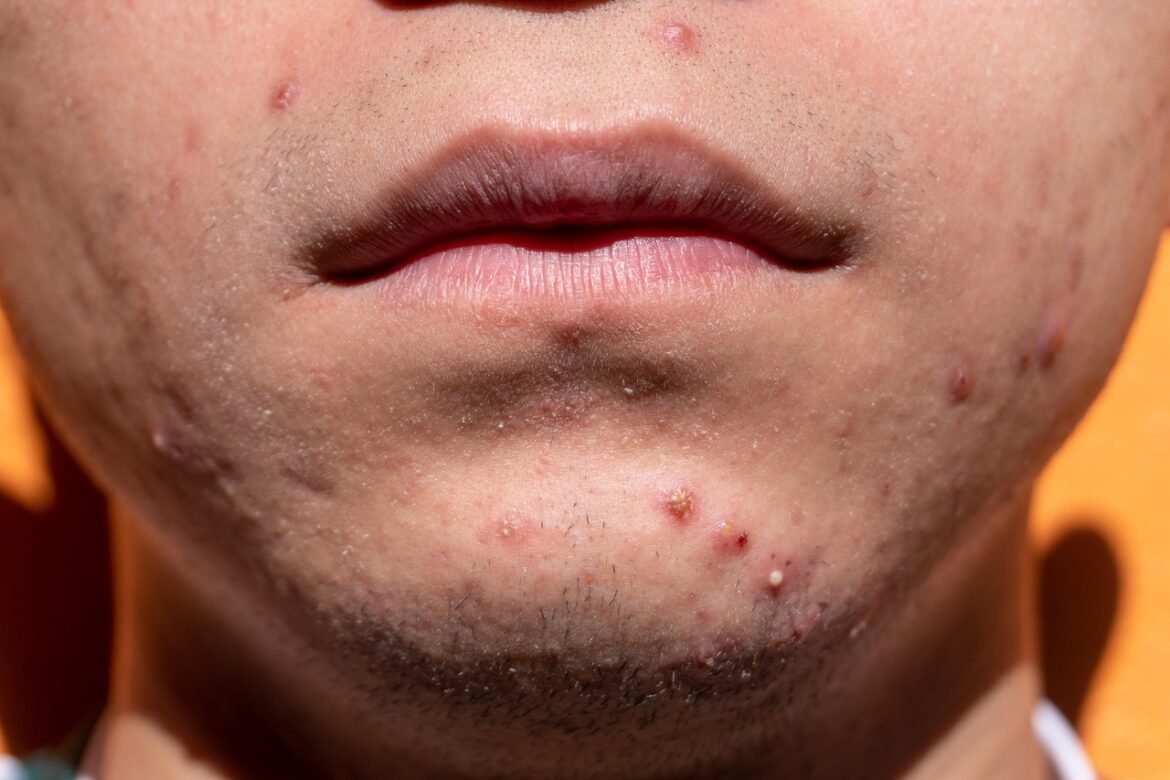Have you ever caught yourself thinking that the breakouts on your skin are the result of simply not washing enough, or that dirt is the enemy behind every pimple? It’s a common feeling—acne makes many of us feel like our skin is unclean or unhealthy, and the impulse to scrub harder or more often can be tempting. But what if the very idea that acne means your skin is “dirty” is just a myth? In fact, this misconception could be doing more harm than good.
The Myth That Acne Means Dirty Skin
Acne has long been linked in popular culture with poor hygiene or “dirty” skin. The assumption is simple: if you have pimples, your skin must be unclean. This idea often leads to excessive face washing, strong scrubs, or harsh skin care products aimed at removing imagined impurities.
But acne isn’t caused by surface dirt alone. If it were, regular washing would clear up issues completely—and yet, acne can persist despite diligent cleansing. In fact, this myth not only misleads but can also inflame the problem by disrupting your skin’s natural protective barriers.
What Actually Causes Acne?
Acne is a multifaceted skin condition influenced by several internal and external factors:
- Excess oil (sebum) production: Hormonal changes, especially during puberty or menstrual cycles, can cause glands to produce more sebum, creating a breeding ground for clogged pores.
- Clogged pores: Dead skin cells, combined with excess sebum, can block hair follicles leading to blackheads, whiteheads, and pimples.
- Bacterial growth: Cutibacterium acnes (formerly Propionibacterium acnes) is naturally present on the skin but can multiply inside clogged pores causing inflammation.
- Inflammation and immune response: The body’s reaction to bacterial overgrowth results in redness, swelling, and pus formation in the affected area.
Notice that dirt doesn’t make this list. While environmental dirt and grime can add to skin surface impurities, they are not root causes of acne.
Understanding Your Skin’s Microbiome
Our skin is home to a complex community of bacteria, fungi, and other microorganisms—collectively called the skin microbiome. This live ecosystem plays a vital role in protecting against harmful pathogens and maintaining skin health.
When the microbiome is balanced, your skin barrier is strong, moisture retention is optimized, and inflammation stays in check. Disrupting this delicate balance with overuse of harsh cleansers or antibacterial products can weaken your skin’s defenses, making it more prone to irritation and even acne.
Treat your skin gently like a garden ecosystem. Avoid antibacterial soaps and opt for products that support the natural microbiome to help keep acne at bay.
Why Over-Cleansing Can Make Things Worse
It’s tempting to fight acne by scrubbing away every bit of oil and dirt. But over-cleansing can:
- Strip natural oils: Skin produces oil to protect and moisturize itself. Removing this barrier triggers even more sebum production, leading to oily, breakout-prone skin.
- Damage the skin barrier: Excessive washing or scrubbing can cause micro-tears, redness, and sensitivity.
- Increase dryness and irritation: Dry skin may peel and flake, clogging pores more easily.
- Disrupt beneficial bacteria: Harsh products can kill good bacteria, upsetting the microbiome balance.
Studies show that patients with acne who use overly harsh skin regimens often report worsened symptoms. Instead, a balanced, gentle routine encourages skin healing.
Effective Approaches to Healthy Skin
Combat acne intelligently by focusing on what your skin truly needs:
- Use gentle cleansers: Choose mild, non-comedogenic cleansers suited for acne-prone skin.
- Limit washing to twice daily: Excess washing may trigger dryness and oil rebound.
- Incorporate proven acne-fighting ingredients: Look for products with salicylic acid, benzoyl peroxide, or niacinamide that target acne-causing bacteria and reduce inflammation.
- Moisturize: Use lightweight, oil-free moisturizers to maintain your skin barrier.
- Be patient: Acne treatments often take several weeks to show results. Avoid switching products too quickly.
- Consult a dermatologist: For persistent or severe acne, professional guidance is best.
It’s important to think of acne care not as a race to scrub away everything, but more like a nurturing process. As with any complex ecosystem, balance and consistency win the day.
Avoid piling on heavy makeup or skin care products that can clog pores further, especially while treating active acne.
Frequently Asked Questions
Does washing my face more often make acne disappear faster?
Not usually. Washing more than twice a day can irritate skin and increase oil production, potentially worsening acne.
Can diet influence acne?
Diet can impact acne for some people. Foods high in sugars and dairy may contribute to breakouts, but effects vary individually.
What is the best way to clean acne-prone skin?
Use a gentle cleanser with ingredients like salicylic acid or benzoyl peroxide twice daily, followed by a non-comedogenic moisturizer.
Is there a connection between stress and acne?
Yes, stress can trigger hormonal fluctuations that increase oil production and inflammation leading to acne flare-ups.
Your Skin Deserves Understanding, Not Judgment
Acne doesn’t tell a story of dirt or poor hygiene—it speaks to the complex, beautiful biology of your skin. Recognizing this changes not only how you care for your skin but how kindly you treat yourself. Instead of scrubbing harder or feeling ashamed, embrace routines that support balance and healing.
For those who want to dive deeper into caring for skin naturally, exploring how to use gentle products like natural oils to transform your skin and hair health can be a gentle next step on your wellness journey.

